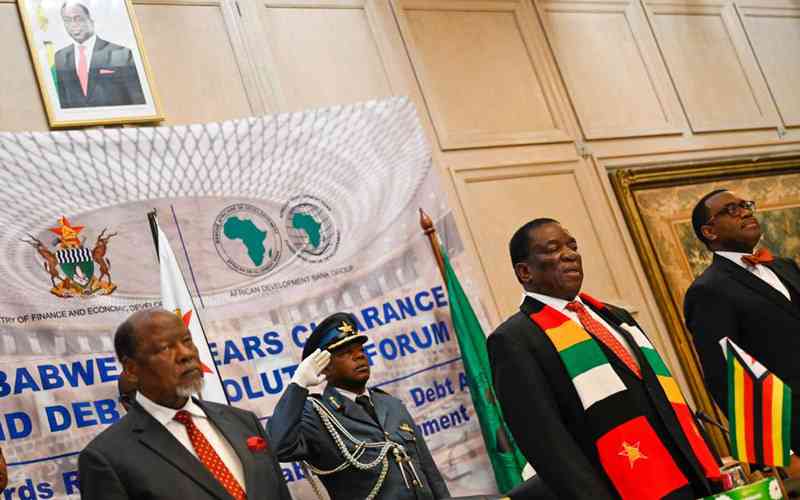
ONE of the major constraints that developing countries (including Zimbabwe) are facing today is the issue of a massive debt overhang. The predicament is that countries then fail to unlock external funding to support local production mainly because of a debt trap.
It also affects the ability of the country to access reasonable cost of capital critical for financing infrastructure projects. Piggy believes that debt management is critical.
While debt sometimes provides the ability to build other income-earning assets, it is important that countries move away from financing consumptive expenditure using debt.
On November 2 2023, Piggy attended a Zimbabwe Economic Society (ZES) breakfast meeting. Andrew Bvumbe, head of the Zimbabwe Public Debt Management Office under the Ministry of Finance and Investment Promotion made a presentation titled "Re-engagement, Arrears Clearance and Debt Resolution Process”.
The key take-away was that the external debt overhang is weighing down heavily on the country’s development needs and will continue to negatively impact the country’s ability to meet the SDGs targets, especially in health, education, and social protection.
In this article, Piggy looks at some of the strategies that are being put in place to resolve the debt situation.
An analysis of the debt figures reveals that the total Public and Publicly Guaranteed (PPG) external debt for Zimbabwe amounted to US$12,5 billion as at end September 2023.
This figure includes the Reserve Bank of Zimbabwe liabilities of US$3,40 billion. Interestingly, out of the US$9,13 billion multilateral and bilateral debt, US$6,97billion (76%) are principal arrears, interest arrears, and penalties.
- Government frets over dwindling correspondent banking relationships
- Zim Debt Conference draws closer
- Perspectives: Closing the gender gap through effective pro- poor debt policies
- CSOs warn against resource-backed loans
Keep Reading
This demonstrates a serious need on the part of the Government of Zimbabwe to pursue serious engagement initiatives with creditors.
The Government of Zimbabwe has formulated an Arrears Clearance, Debt Relief, and Restructuring Strategy, which is focussed on addressing the country’s debt distress situation. The key strategies and reform agenda are detailed hereunder:
Token payments
In March 2021, the Government of Zimbabwe resumed making quarterly token payments to the World Bank Group (US$1 million), African Development Bank Group (US$500 000) andthe European Investment Bank (US$100 000).
In addition, in September 2021, the government also started making quarterly token payments amounting to US$100 000 to each of the 16 Paris Club bilateral creditors.
The token payments serve as a sign of commitment to the engagement and re-engagement process with the international community and should help in opening platforms for dialogue.
Structured dialogue platform
In December 2022, a Structured Dialogue Platform was established with all creditors and development partners. President Emmerson Mnangagwa appointed the President of the African Development Bank, Dr. Akinwumi Adesina, as the Champion and former President of the Republic of Mozambique, Joaquim Chissano as the high-level facilitator of the arrears clearance, and debt resolution process.
The Structured Dialogue Platform agreed on three strategic pillars for implementation; (i) Economic reforms; (ii) Governance reforms; and (iii) Land tenure reforms, compensation of former farm owners, and the resolution of Bilateral Investment Protection and Promotion Agreements (Bippas).
The economic reforms matrix is largely centred on fostering macroeconomic stability through a tight monetary policy and sound fiscal management.
Governance reforms cover issues to do with enhancing justice delivery, promotion of human rights, combating corruption and electoral reforms.
On the one hand, land tenure reforms focus on enhancing the bankability and transferability of the 99-year lease, implementation of the US$3,5 billion Global Compensation Deed and the resolution of Bippas.
Overall, the government has developed a Roadmap on the Arrears Clearance and Debt Resolution process, which defines the course of action going forward.
In addition, it has started deeper and direct bilateral engagements with some of the key western Capitals: Washington D. C., London, and going forward Brussels, Paris, among others.
In conclusion, the high public debt level relative to GDP affects Zimbabwe’s international financial credibility and hence its ability to unlock credit and investment.
Further, the lack of access to international financial resources to finance Zimbabwe’s economic recovery and NDS1 priority projects and programmes will continue to affect the country’s capacity to achieve its inclusive economic development goals.
There is need for an all-stakeholders approach that will genuinely innovate specifically in debt resolution and structuring strategies, local development, and improvement of the business environment.For more insights, join a PiggyBankAdvisor WhatsApp Group (+263 78 358 4745).
- Matsika is the managing partner at Mark & Associates Consulting Group and founder of piggybankadvisor.com. — +263 78 358 4745 or [email protected] / batanai@ piggybankadvisor.com.






